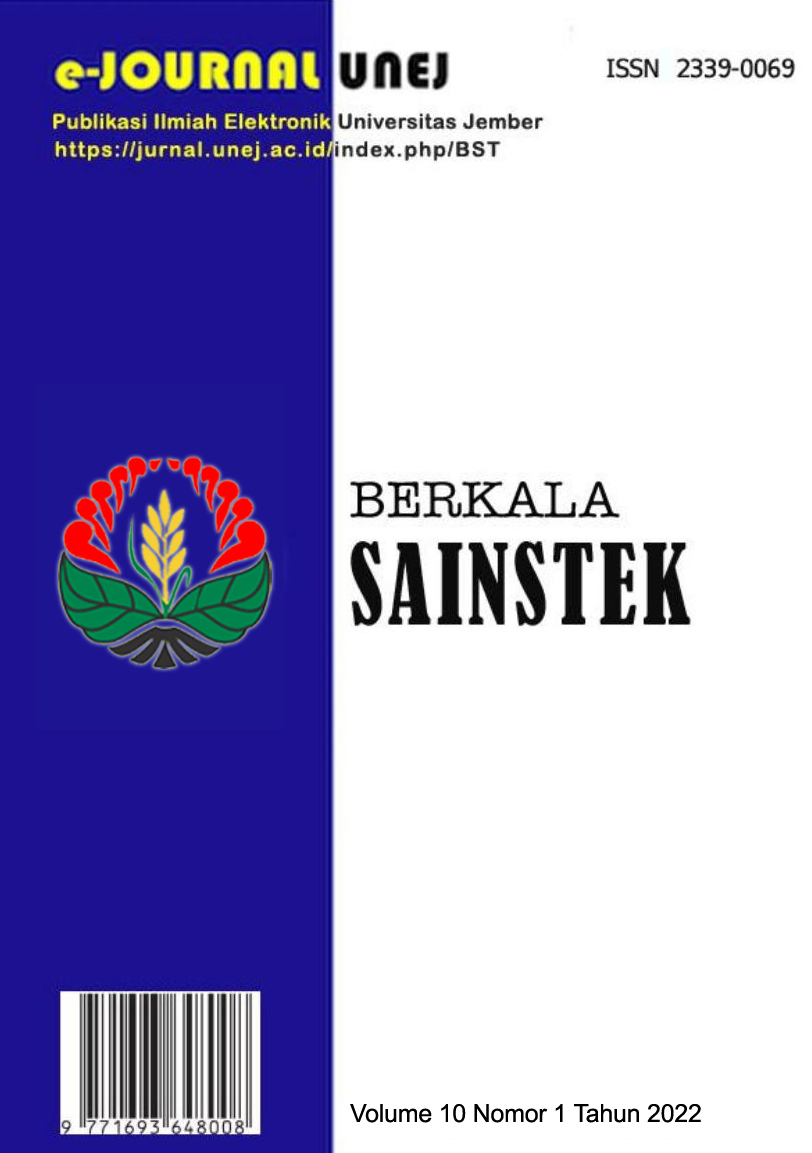Proximate and Essential Macrominerals Analysis of Tembakul (Mudskipper) Fish Flour as a Food Source for Stunting Prevention
DOI:
https://doi.org/10.19184/bst.v10i1.31030Keywords:
Mudskipper, stunting, proksimat, mineral makroesensialAbstract
The main cause of stunting is due to inadequate food intake according to the needs for growth and development of children, or insufficient nutrition of pregnant women. The low nutritional intake of pregnant and lactating mothers as well as children under five years old who are still growing and developing is generally caused by the wrong diet. One of the efforts to prevent stunting from an early age is to search for several sources of animal source food containing protein, fat and macro essential minerals according to nutritional standards. The purpose of this study was to determine the proximate content including protein and fat nutrition, water content and ash content, as well as mineral content including calcium, iron and phosphorus, from Tembakul (mudskipper) fish flour as the main needs in the growth of children, during pregnancy and lactation. Protein analysis was carried out using the Kjeldahl method, and fat analysis by extraction using a non-polar solvent, while the determination of essential macro minerals calcium and iron was carried out using an Atomic Absorption Spectrophotometer, and phosphorus analysis using ultraviolet spectrophotometry. The proximate content of Tembakul (mudskipper) fish flour from the Mempawah mangrove ecosystem is fat content (1.80%), protein content (50.67%), water content (24.58%), and ash content (20.20%). Mudskipper fish flour contains 3 essential minerals, namely Calcium (2.15%), Phosphorus (2.50%) and Iron (270.26 ppm).





